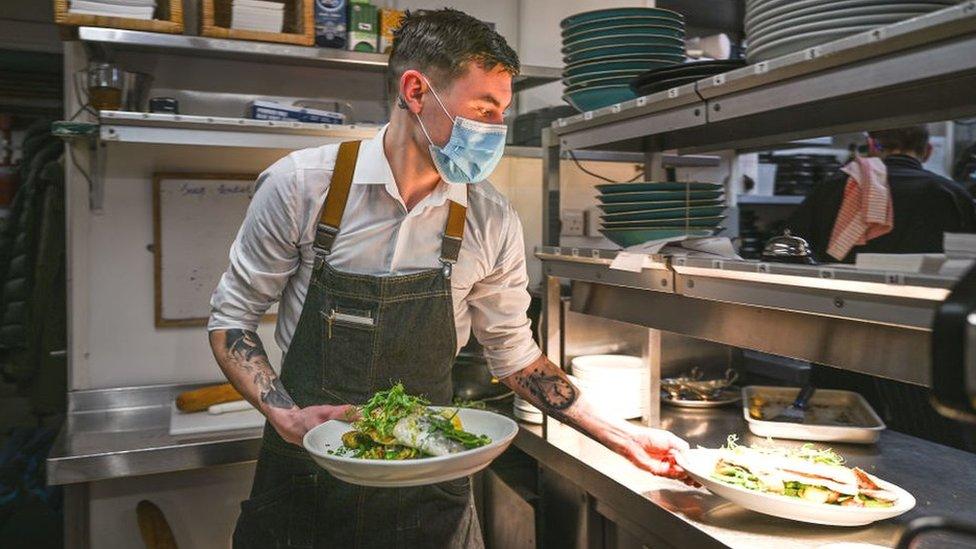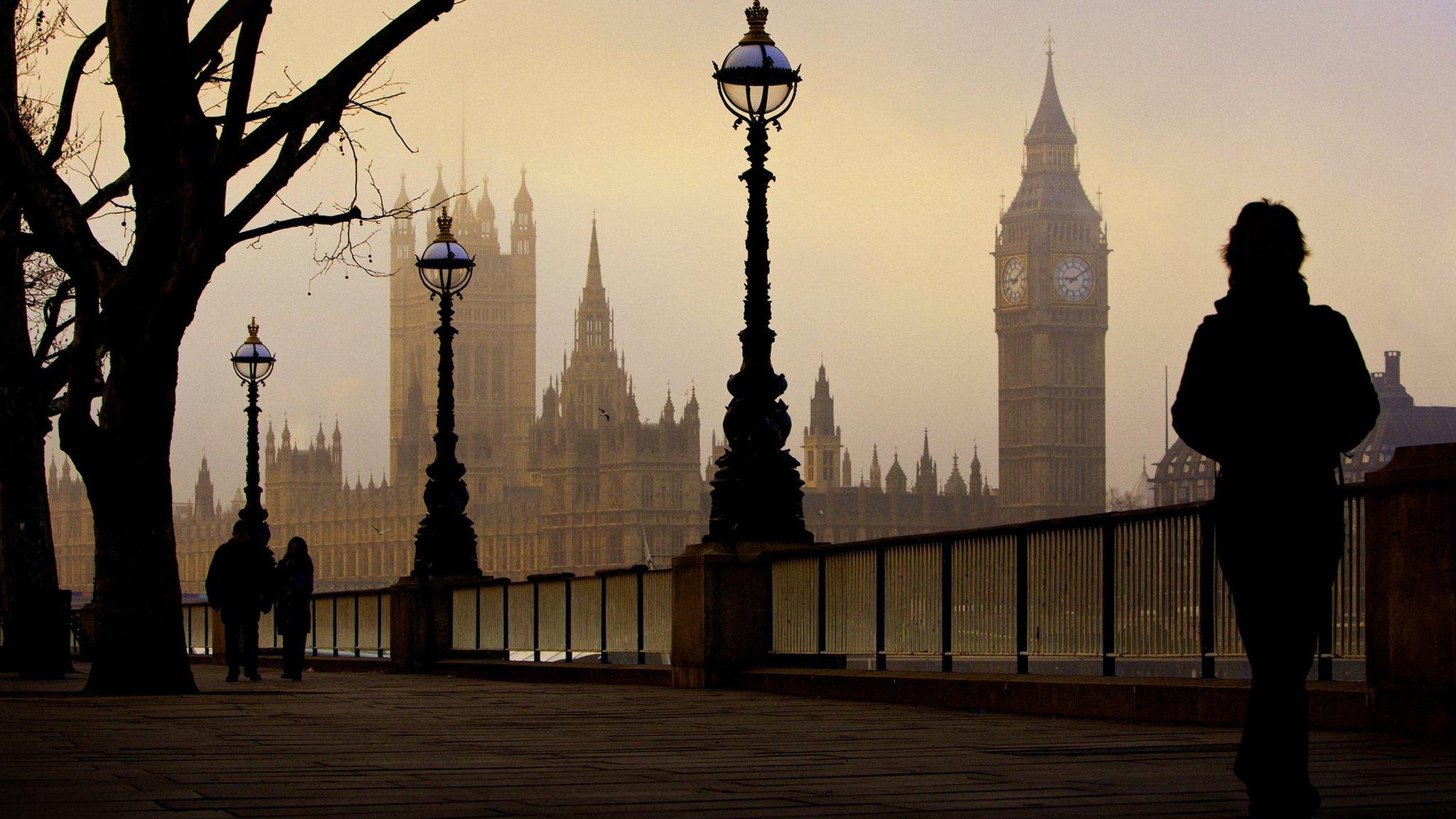Government borrowing halves as Covid costs fall
- Published
- comments

Government borrowing in the last financial year more than halved from the amount borrowed a year earlier when the UK saw major Covid restrictions.
Borrowing - the difference between spending and tax income - stood at £151.8bn, less than half the £317.6bn borrowed in 2020-21, figures showed.
The government has had to borrow less since pandemic schemes, such as furlough, have come to an end.
It also made more income from taxes which has helped cover the gap.
The Office for National Statistics, external said the government received much stronger than expected revenues from taxes, with receipts at £619.9bn for the financial year, an increase of £94.3bn.
However, borrowing in March remained well above pre-pandemic levels.
At £18.1bn, the figure was the second-highest amount for the month since records began in 1993, but was £8.8bn less than the the amount borrowed in March 2021.
The ONS said the total amount the government borrowed in the last financial year was worth about 6.4% of gross domestic product (GDP).
It was also almost 20% higher than forecast by the Office for Budget Responsibility last month, which said it expected borrowing in 2021-22 to be £127.8bn.
Despite the fall in government borrowing from the previous year, it is still the third-highest level for a financial year since records began in 1947. It also comes as Chancellor Rishi Sunak is under pressure to provide support for households and businesses hit by rising prices.
The pick-up in inflation has also led to government debt interest payments to reach a record high for a financial year at £69.9bn.
In response to the latest figures, Mr Sunak said: "Thanks to the action we've taken, the economy is recovering and our public finances are improving.
"Public debt is at the highest levels since the 1960s and rising inflation is pushing up our debt interest costs, which mean we must manage public finances sustainably to avoid saddling future generations with further debt."
Labour's shadow chancellor, Rachel Reeves, said: "These figures will be of little comfort to those facing soaring bills and rising prices.
"The Conservatives must urgently bring an emergency Budget forward to stop the cost of living crisis spiralling even more."
Liberal Democrat Treasury spokesperson Christine Jardine said: "Families across the country are struggling with soaring energy bills, rising food prices and unfair Conservative tax hikes. They desperately need a tax cut to help them make ends meet.
"These figures reveal that Rishi Sunak raked in a £9bn VAT windfall last year. He should be using that money to help families with an emergency VAT cut now."
Samuel Tombs, chief UK economist at Pantheon Macroeconomics, suggested the latest public finance figures were "unlikely to make the Treasury anxious", adding that recent estimates of borrowing had been revised down "significantly, as more data have been collated".
